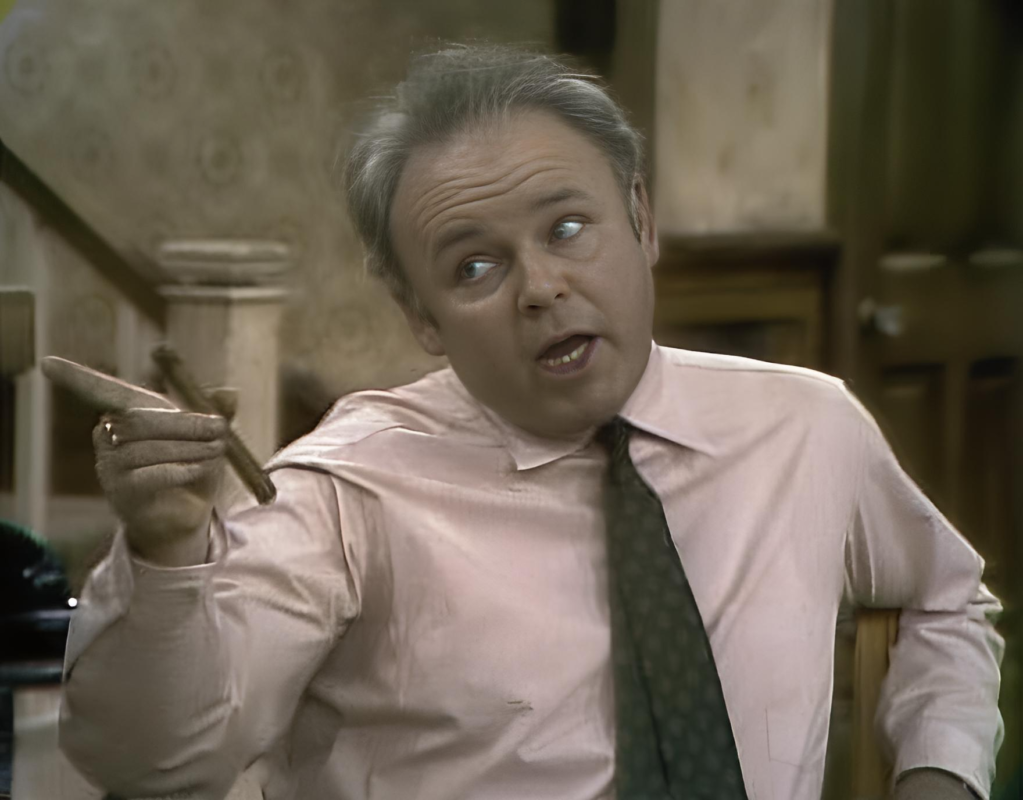
Iconic singer, actor, and civil rights activist Harry Belafonte has voiced concerns about the iconic television show “All in the Family” and its use of racial satire. Belafonte, known for his profound contributions to the civil rights movement and his dedication to social justice, questions whether the show’s comedic approach to addressing racism might sometimes undermine its intended message.
“All in the Family,” created by Norman Lear and aired from 1971 to 1979, was revolutionary in its willingness to tackle controversial social issues head-on. The show featured Archie Bunker, a character known for his unapologetic bigotry, played by Carroll O’Connor. The intention behind Archie’s character was to highlight and criticize the prejudiced views prevalent in society through satire and humor.
However, Harry Belafonte argues that the comedic framing of such serious issues can be problematic. In an interview, Belafonte shared his concerns: “While ‘All in the Family’ was undoubtedly bold in its approach, there’s a risk that the humor can sometimes obscure the gravity of the issues it aims to address. Racism is not a laughing matter, and the danger lies in the possibility that viewers might laugh at Archie Bunker’s bigotry without recognizing the underlying critique.”
Belafonte’s critique touches on a fundamental issue in the use of satire for social commentary. The effectiveness of satire depends on the audience’s ability to discern the critical message behind the humor. For some viewers, the comedic elements of “All in the Family” might lead to a superficial understanding of the show’s social critique, rather than the deep reflection necessary to challenge and change prejudiced views.
“Comedy can open doors to difficult conversations, but it must be handled with sensitivity and care,” Belafonte continued. “Racism is a deeply rooted and harmful issue that affects lives and communities profoundly. When addressing such a topic through humor, there’s a fine line between exposing the absurdity of bigotry and inadvertently normalizing it.”
This perspective aligns with broader concerns raised by other critics and scholars who have analyzed the impact of media representations on public attitudes. The fear is that without a clear and unambiguous message, shows like “All in the Family” might fail to prompt the critical thinking needed to combat racism effectively.
Despite these criticisms, “All in the Family” remains a landmark in television history, credited with opening up important conversations about race and social justice during a time when such topics were often avoided in mainstream media. However, its legacy is complex, reflecting both its groundbreaking contributions and the limitations of its comedic approach.
Harry Belafonte’s reflections serve as a crucial reminder of the complexities involved in using media as a tool for social change. As television and other forms of entertainment continue to evolve, his insights underscore the importance of thoughtful and nuanced approaches to representing and critiquing social issues, ensuring that the intended messages of critique and reflection are effectively communicated and understood.
